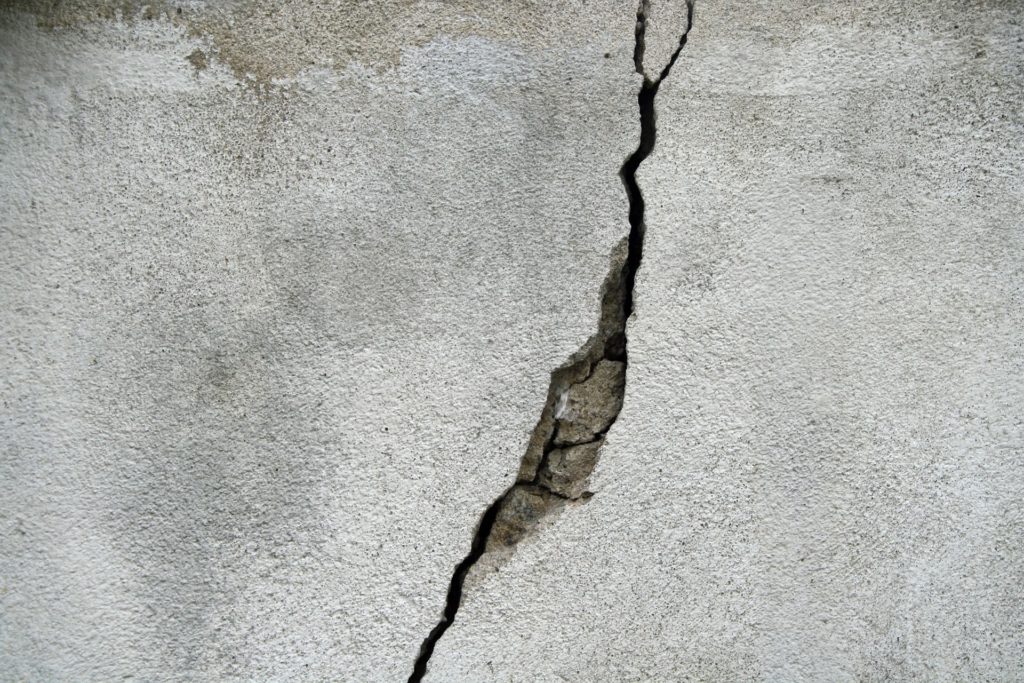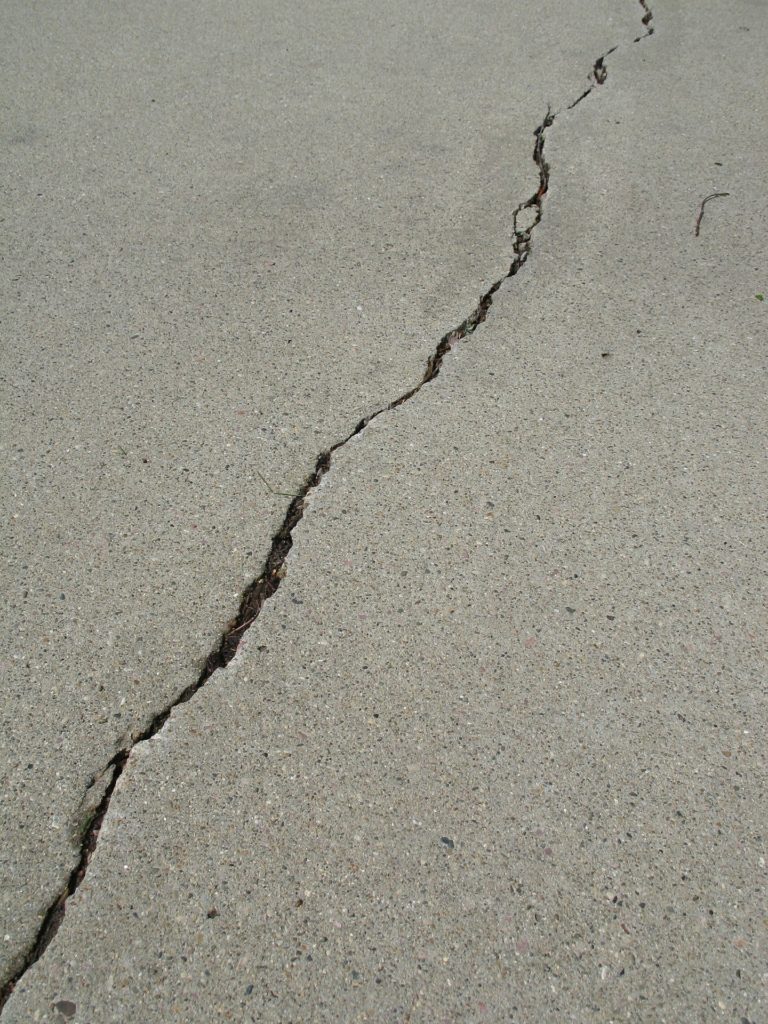Sometimes after having concrete poured, trying to D.I.Y. concrete repair, or after having concrete for many years, you may notice that your concrete is beginning to crack. The crack may be small and spider webbed, or it may be a large crack that spits a corner off or right down the middle. Whatever crack you may see, you are probably wondering where it came from. Concrete doesn’t just crack on its own, right? While there is a reason behind every concrete crack, it may be not be the most obvious reason. Let’s find out a few reasons why concrete cracks.

The first, and most obvious, reason that you may have a concrete crack is due to heavy impact. Did something large or heavy drop onto your concrete slab? Was there a storm where a tree fell onto the slab? Or perhaps a heavy truck parked in your driveway and caused the concrete crack. In any case, you now have a crack in your concrete that needs resolved. While you can leave it without much difference to your overall usage, you will not get the longevity that you would with a concrete slab which is repaired. A concrete crack can let in water which can cause problems with your cement. Additionally, the water can freeze and expand in the winter and make your small crack worse over time.
If you have chosen to do a D.I.Y. project to pour your concrete, a common mistake is putting together the wrong mix. Mixing concrete is a delicate science. Not only does it require you to get the right ratios, but you must also consider the weather and the altitude and other factors. It’s not simple activity to do on the weekend for most people, and that’s where we run into problems. One way that a concrete mix can go wrong is that people add more water than is necessary. While this does make the mix easier to pour, it does not make the mix more durable and makes it much easier to crack. Why is that?
As concrete does dry over time, it will begin to get rid of the extra water through evaporation. This is not what you want. This means that the concrete is going to significantly shrink, and this will lead to cracking. As you add more and more water to make it easier to pour, you will get more and more shrinkage and more and more eventual cracking. This type of cracking should be replaced as the concrete is not sturdy or durable and will not have longevity.

One of the most common causes of a cracked concrete slab is that the owner experiences problems like hydrostatic pressure which causes pressure against the slab or some sort of settlement. With hydrostatic pressure, the loose soil gets heavy with water and pushes against the concrete slab. Eventually, this will cause a concrete crack. Many people also experience settlement. This is when one part of the slab is not level and is not stable. This is also usually due to soil and water conditions.
This type of concrete crack is very important to resolve because your slab is not structurally sound and you will continue to have problems with it until the problem is resolved. This could require steel push piers or helical piers to repair. These are driven deep into the ground and then attached by a plate to the concrete slab. The weight of the slab is transferred to the piers and then the slab is gradually leveled out.
If you’re having trouble with a concrete crack, it’s time to call Custom Concrete & Foundation Specialists. We are happy to discuss your options with you and answer any questions. We can then set you up with an estimate to figure out what the problem is and how we will resolve it for you. Give us a call today to get started!